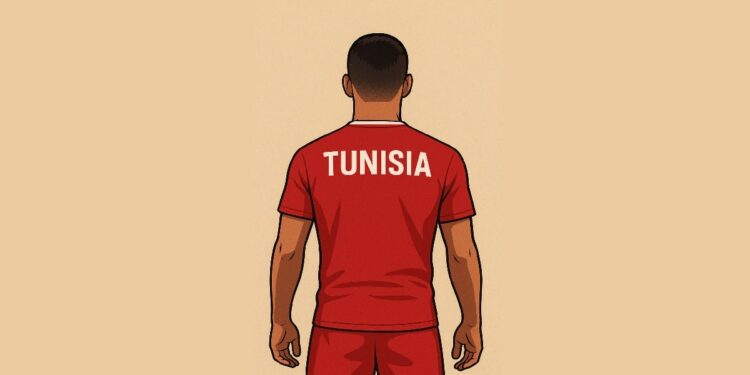It was planned for her to shine on the world scene. Ghofrane BelkhirTunisian weightlifting champion, was to participate in the world championships in Førde, Norway. But at Oslo airport, something has changed. His passport and luggage remained on the counter. Ghofrane had disappeared.
It was not an isolated incident. Behind this sudden departure hides a disturbing trend: Tunisian athletes who, sent abroad to defend the colors of their country, sometimes choose not to come back. Between legitimate aspiration for better living conditions and career opportunity, Tunisian sport seems to be at the crossroads.
Trajectories that tell the phenomenon
- Ghofrane Belkhir – Halterophilia (October 2025)
She leaves behind applause, worried coaches and a federation looking for answers. Norway becomes the rocking point between a promising career and a flight to the unknown. - ABIR ZARROUKI – Fight (February 2024)
In Nice, during a improvement internship, the young African champion of the wrestling, 18, decided to take an unexpected path. Her teammates see her leaving, leaving behind a palpable emptiness and anxiety. - Khalil Zaouali – Football (February 2023)
At 19, the young footballer leaves his club, the Rejiche sporting future, to cross italy clandestinely. A decision that shocks those around him but illustrates the quest for a career that Tunisia can no longer always offer. - Three young weightlifting – Spain (September 2024)
During the Junior World Championship in León, three young men disappear in the unknown, leaving the Tunisian Federation and the Spanish authorities in uncertainty. An investigation is open, but the gesture of athletes reflects a shared reality: Europe represents a tangible alternative to too limited conditions in their country.
Behind each departure, reasons that accumulate
These leaks are not only motivated by the desire to shine elsewhere. They reflect an accumulation of structural factors. Modest wages, limited bonuses and insufficient infrastructure in the country are daily realities for many Tunisian sportsmen.
The supervision remains uneven, with a lack of specialized coaches, partial medical follow -up and fragile professional structures. In addition, the attractiveness of foreign clubs, international visibility and more competitive contracts reinforce the idea that Europe or other destinations offer a more promising horizon. In addition, there are personal considerations: security, stability of life and future prospects, often absent from the Tunisian daily life.
The consequences of these departures are tangible. The national teams lose their most promising young talents. Federations must urgently reorganize internships and competitions. The image of the Tunisian sport is suffering from it, affecting credibility and attractiveness. Finally, sponsors and financial partners are more cautious, slowing down global development. Each departure becomes an alert signal on the structural faults of a sports system which struggles to remember its best elements.
Faced with this reality, the federations are trying prevention measures: reminders of athletes, negotiations, financial incentives and material and medical support. But these initiatives often come up against structural limits: insufficient budgets, heavy bureaucracy and inadequate infrastructure. Existing solutions remain fragile in the face of pressure from opportunities abroad.
In the end, the disappearances of Tunisian athletes in international competitions or internships exceed the simple news item. They reveal a fragility of national sport and the need for a deep structural commitment. Investing in the supervision, strengthening infrastructure and providing concrete support to young talents appears to be the only solution so that the dream of a podium does not become a path to exile, and so that Tunisia can keep and enhance its champions.








